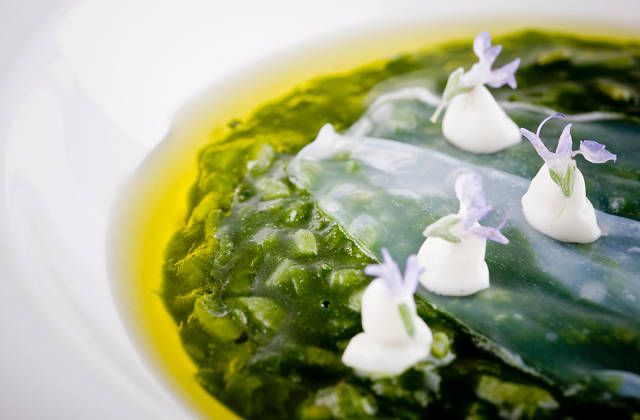
Being at the top of the food chain presents an ethical issue - is it fair for us to eat meat and fish, the carbon foodprint of which are significnatly higher than the vegetables on which we can also survive? Should leafy greens replace the protein rich and often delicious meats to which we have become so accustomed? In the case of seafood, we tend to only use a small part of the body (filets), and throw the rest back (or, if you're smart, use it as compost). Is this fair to the fish, and are we doing our duty as sentient omnivores, capable of considering our food choices?
Spanish chef Angel León thought not, so he began using his Michellen-stared restaurant, Aponiente, as a model for marine sustainablity, cooking with seafood sparingly and ensuring that the whole fish, not just the white meat, was used. Then, he went beyond using eyeballs as thickeners, pioneering the use of plankton in the culinary world. León advocates a sort-of marine version of vegetarianism, eating lower on the food chain to decrease one's carbon foodprint.
"Eating lower and lower on the world's food chains might be a harbinger of disaster...But Dan Barber, chef at Blue Hill and an early proponenet of phytoplankton, says the organism should serve as a reminder about how our lives on land impact oceanic health."
Plankton: The Most Sustainable Seafood from Fast Co. Exist
I love nothing more than a summer tomato (maybe add some balsamic, basil, and home-made mozz). In my free-time, I cook, read about cooking, farm, read about farming, and eat. Food is a basic necessity, but good food ought to be a fundamental right.
See what other Food52 readers are saying.